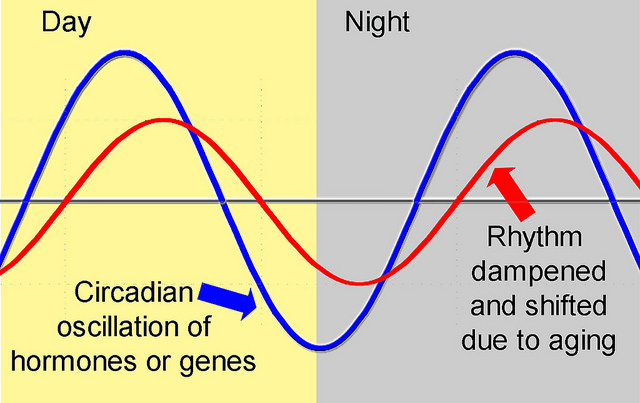We’ve all been there: the late night study or work session that suddenly turned into an all-nighter when you looked out the window and saw the sunrise. Whether it was preparing for finals week, working too many shifts, or finishing up an important project, chances are, you’ve pulled a grueling all-nighter before. Unfortunately, the devastating effects of even just one all-nighter are irreversible. A recent study conducted by a group of Swedish and German scientists suggests that even a single all-nighter leaves lasting effects on one’s body. Our bodies have built-in “biological clocks” called circadian rhythms. Circadian rhythms regulate our sleep cycles and metabolism, as well as various other physiological processes in our bodies. Certain metabolic processes are turned on while you’re awake, whereas others are activated while you’re asleep. Pulling an all-nighter messes up these circadian rhythms, affecting your metabolism.
Image Source: Tetra Images
In the study, scientists created two groups of screened participants: one control group and one experimental group. Both groups had regular sleep and food intake habits prior to the study. However, during the study, the experimental group was asked to stay up all night, whereas the control group got a regular night’s sleep. The next day, researchers took blood and fat tissue samples from the abdomen of the two study groups. Tests revealed that those in the group that pulled the all-nighter showed impaired glucose tolerance in their genes. Impaired glucose tolerance is a precursor to type 2 diabetes mellitus; this means that your blood glucose levels are higher than normal, but not quite high enough to be classified as diabetes yet. However, your risk for developing type 2 diabetes as well as cardiovascular disease increases significantly. It’s astounding that even a single all-nighter can cause such a drastic effect in the body; imagine the impact of several all-nighters over the course of a lifetime. So next time you think about getting another cup of coffee or tea and pulling an all-nighter, think again. Your body might not like that idea too much.
Feature Image Source: Shifting Rhythms by Oregon State University










